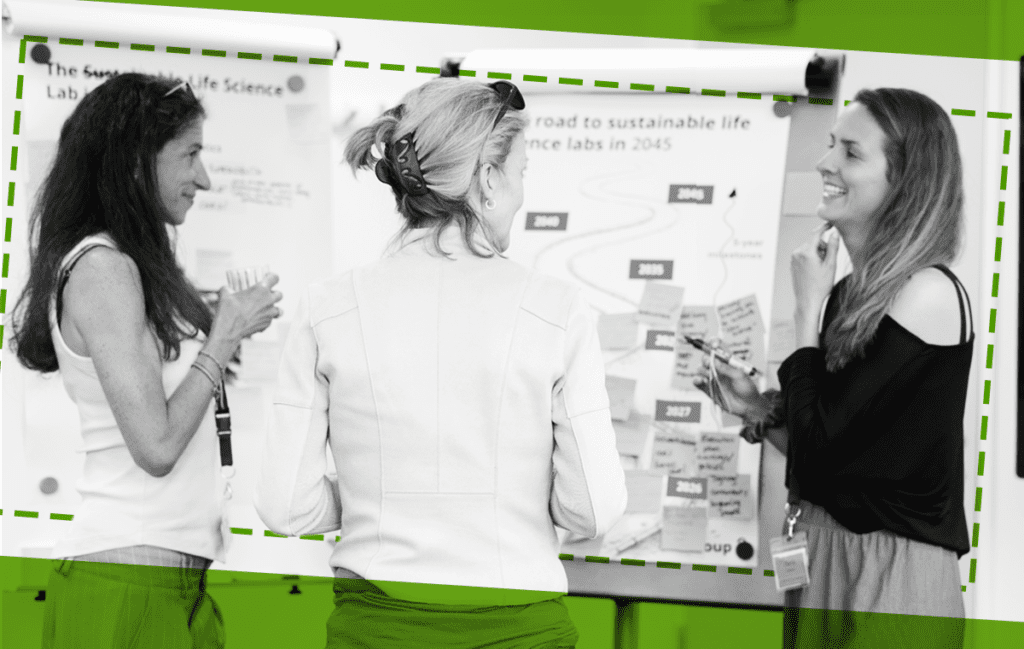The Institute for Bioengineering of Catalonia (IBEC) has joined organisations from nine European countries in the Heidelberg Agreement to promote environmental sustainability in the funding of scientific research. The agreement discusses the adoption of practices that ensure environmentally sustainable research and how to move towards this model.

Promoting sustainability in research is urgent because of the sector’s huge environmental impact and contribution to climate change. According to the Wellcome charitable foundation’s 2023 report, Advancing environmentally sustainable health research, laboratories consume between 5 and 100 times more energy than commercial premises of the same size and generate around 1-2% of the world’s plastic, with an annual volume of 5.5 million tonnes. In addition, the biomedical industry produces nearly 200 million tonnes of CO2, half of the UK’s emissions. There are also emissions from data storage and unsustainable mining of the hardware used.
The bodies that legislate and fund science have the power to make a difference, not only through laws and regulations, but also by incorporating sustainability into their evaluation criteria, just as they have done with gender equality and research integrity.
Teresa Sanchis
In this context, funders, research institutions and sustainability associations from 9 European countries have come together for the first time to agree on the adoption of practices to ensure environmentally sustainable research and to discuss how to move towards this model. They did this by developing the ‘Heidelberg Agreement on Environmental Sustainability in Research Funding‘, which was published on Tuesday 22 October.
The Institute for Bioengineering of Catalonia (IBEC) was the only Spanish institution among the signatories. As a research centre, IBEC has a strong commitment to promoting more sustainable practices in research. Last year, for example, it became the first research centre in the country to have its laboratories certified as sustainable by the My Green Lab organisation.
Teresa Sanchis, IBEC’s Head of Strategy and co-author of the Heidelberg Agreement, hopes that this manifesto will provide the initial impetus for other European bodies to join in: The bodies that legislate and fund science have the power to make a difference, not only through laws and regulations, but also by incorporating sustainability into their evaluation criteria, just as they have done with gender equality and research integrity.
The collaboration that led to the agreement was initiated during a workshop on sustainable research organised by the European Molecular Biology Organisation (EMBO) in Heidelberg, Germany, in May 2024.
The next stage will be to establish an international sustainable research network, open to other interested organisations, to work on the issues raised in this document. Future meetings of the founding organisations are already planned.
The agreement marks the beginning of a broader European effort towards environmental sustainability in research funding. It is an invitation to the international scientific community to work together on this crucial issue. This is the only way to make progress towards the Paris Agreement on climate change and the UN’s 2030 Agenda for Sustainable Development.
Referenced Article:
Weber, Philipp M.; Bendiscioli, Sandra; Wallon, Gerlind; von Ahsen, Uwe; de Beaufort, Anne Marie; Boland, Marion; Dekkers, Florijn; Dunon-Bluteau, Dominique; Farley, Martin; Fox, Alyson; Guillot, Stéphane; Lannelongue, Loïc; Łazarowicz-Kowalik, Marta; Rouse, Brendan; Samuel, Gabrielle; Sanchis, Teresa; Simon, Susan; Tata, Mathew; van der Goot, Gisou and Watt, Fiona M. The Heidelberg Agreement on Environmental Sustainability in Research Funding. Zenodo (2024). DOI: 10.5281/zenodo.13938809





